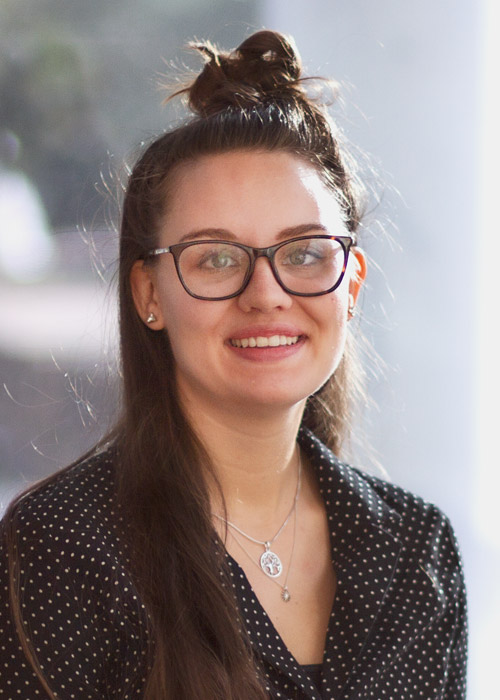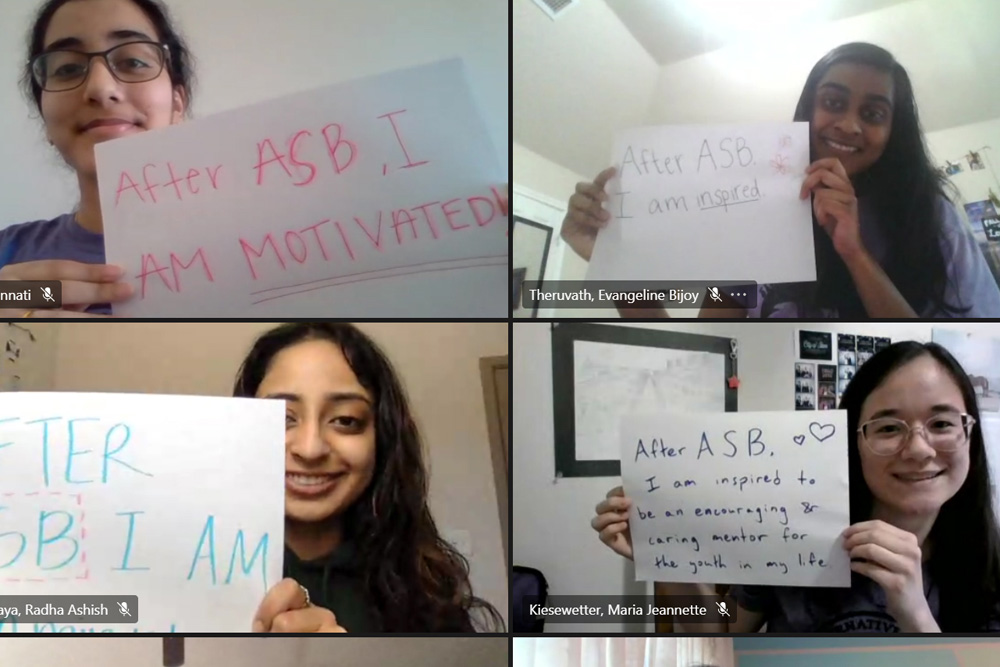
After last year’s plans were upended by the COVID-19 pandemic, the Alternative Spring Break (ASB) program at The University of Texas at Dallas returned this spring in a virtual format, allowing Comets to find new ways to give back.
Participating students usually spend their spring break doing hands-on service projects that help communities, from building houses to assisting with disaster relief. In years past, projects were in-person and held throughout Texas and the U.S.
This year, 66 students were divided into seven teams that tackled a total of 21 projects, which impacted areas such as animal services, hunger and homelessness, LGBTQ and ally services, immigration, and sustainability.
“Service doesn’t stop just because we’re online. The needs of our communities and nonprofit organizations haven’t disappeared. If anything, those needs have grown stronger than ever,” said Anne Hart, program coordinator for the Office of Student Volunteerism (OSV). “Virtual volunteering isn’t a brand-new concept to arise from the challenges of the past year. In fact, it is a valuable form of service with unlimited opportunities.”
Computer science freshman Cj Justice-Nwobike participated in ASB for the first time, and although it was an atypical experience, she learned something new.
Justice-Nwobike’s team focused on sustainability, creating educational videos for schoolchildren and drafting a proposal on how the University can reduce its use of disposable plastics.
“I didn’t know UTD was so involved in making the campus more sustainable,” she said. “So when I heard we were going to write a proposal and UTD was actively looking for ways to cut down the use of plastic, I thought, ‘Wow, I’m on a campus that really cares about the environment and cares about the future.’”

“Service doesn’t stop just because we’re online. The needs of our communities and nonprofit organizations haven’t disappeared. If anything, those needs have grown stronger than ever.”
Anne Hart, program coordinator for the Office of Student Volunteerism at UT Dallas
Emma Bluestein and Bella Ngo, who have both participated in the past, helped lead their respective teams’ projects and found the experience rewarding in new ways.
Ngo, an information technology and systems senior, was part of an immigration project. Her team listened to guest speakers and translated documents from the National Archives and Records Administration, among other activities.
She lauded her fellow Comets, who demonstrated that you don’t have to come up with the end-all, be-all solution to a problem. You can start small, like giving workers bottles of water on a hot day, she said.
Bluestein, a philosophy senior, has been active with OSV since her freshman year. This year, she helped spearhead the LGBTQ and ally services project in which the team created materials for Campus Pride and Dallas Hope Charities.
“It was easier for people to participate this year who may not have been able to go on the normal Alternative Spring Break because of things like jobs,” Bluestein said. “Spring break is something students are reluctant to give up sometimes, but every time I’ve participated, it has never felt like I was giving something up, because you get so much out of it.”
